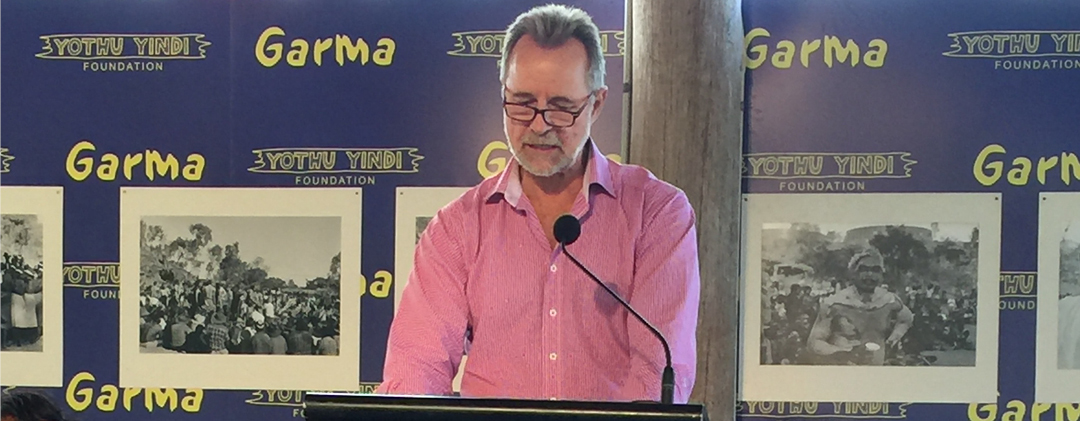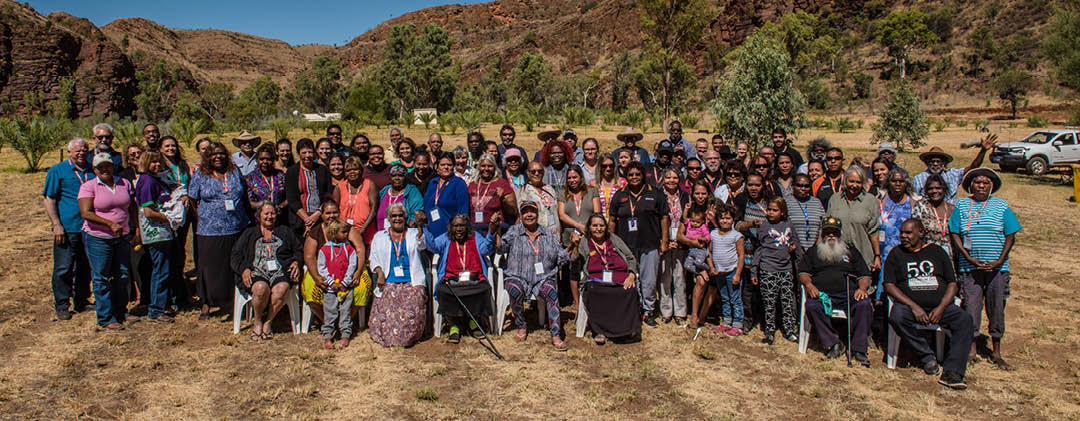PM&C is responsible for policy related to Indigenous affairs and delivers the Indigenous Advancement Strategy (IAS) to improve the lives of Indigenous Australians (Purpose 3).
Table 13 provides a summary of results listed against the relevant activity, KPI and measurement from the Corporate Plan 2016–20.
| Activities | KPI | Performance Measure | Result |
|---|---|---|---|
|
Policy advice |
Achieved |
||
|
Provide high-quality and timely advice on Indigenous affairs to support the Prime Minister, Minister for Indigenous Affairs, assistant ministers, the Cabinet and the Executive. |
The Prime Minister, Minister for Indigenous Affairs, assistant ministers, the Cabinet and the Executive are satisfied with the quality and timeliness of advice and support provided. |
Feedback from the Prime Minister, Minister for Indigenous Affairs, assistant ministers, the Cabinet, ministerial offices and the Executive shows a high level of satisfaction with the quality and timeliness of advice and support provided. Qualitative assessment of a sample of activities using case studies, independent panels or providers. Responses to requests for briefs are delivered within the agreed timelines. Policy review projects are delivered within the agreed timeframes. |
Survey responses supported a high level of satisfaction with the quality and timeliness of advice and support provided. Case studies: 86% of briefs delivered within agreed timelines. This measure is included in the timelines of the briefs responses above. |
|
Collaboration |
Achieved |
||
|
Working directly or indirectly with other agencies and external parties to strengthen relationships and drive whole-of-government effort in Indigenous affairs. Building partnerships that strengthen our engagement with Aboriginal and Torres Strait Islander communities, leaders and stakeholders to facilitate holistic place-based responses, support policy decisions and program outcomes. Provide leadership to the APS in relation to government decisions, policies and strategic priorities that affect Aboriginal and Torres Strait Islander peoples. |
Key agencies and external stakeholders are satisfied with the timeliness, relevance and effectiveness of our collaborations across government and with Aboriginal and Torres Strait Islander people. |
Qualitative assessment of a sample of activities using case studies, independent panels or providers. Feedback from external stakeholders to demonstrate effective collaboration between the Department and another party on a specific policy decision or outcome. |
Case studies: Survey responses supported effective collaboration with external stakeholders. |
|
Support and advice |
Achieved |
||
|
Support to the Prime Minister, Minister for Indigenous Affairs, portfolio ministers and assistant ministers and their offices. Advice to stakeholders on the matters outlined in the Administrative Arrangements Order. |
Internal and external stakeholders are satisfied with the quality, relevance and timeliness of the advice and support provided by the Department. |
Feedback from key internal and external stakeholders to demonstrate a high level of satisfaction with the quality and timeliness of advice and support provided. Qualitative assessment of a sample of activities using case studies, independent panels or providers. |
Survey responses supported a high level of satisfaction with the quality and timeliness of advice and support provided. Case studies: |
|
Policy coordination |
Achieved |
||
|
Coordinate submissions, responses, impacts and contributions to government policies to assist in shaping their development. |
Coordinate and contribute to timely and effective policy development across government. |
Qualitative assessment of a sample of activities using case studies, independent panels or providers. |
Case study: |
|
Monitoring and implementation (program delivery) |
Achieved |
||
|
Design and deliver key government Indigenous affairs initiatives, policies, programs, national agreements and reform agendas, including those under the IAS programs:
Drive and oversee whole-of-government effort to improve the effectiveness of mainstream program delivery for Indigenous Australians. |
Actively monitor and support timely development and implementation of government policies and programs. Improved outcomes for Indigenous Australians from IAS activities in key areas such as education, employment, community safety and wellbeing and economic development. Improved delivery of mainstream programs for Indigenous Australians. |
Qualitative and quantitative assessment of a sample of IAS grants and activities. Feedback from stakeholders on extent of collaboration across government to deliver outcomes for Indigenous Australians. |
Case studies: Survey responses supported effective collaboration with stakeholders. |
|
Enhancing capability |
Not achieved |
||
|
Strengthen the capability of staff through ongoing training and capacity building activities. Develop and establish evidence based frameworks and tailored strategies to support delivery of programs across the regional network. |
Develop, plan and deliver relevant, timely and high-quality training to staff to enhance their capability and effectively deliver on programs and the achievement of policy outcomes. |
Qualitative assessment of a sample of activities using case studies, independent panels or providers. Timeframes in relation to the delivery of scheduled training are met. Staff complete all mandatory training. Feedback from staff demonstrates a high level of satisfaction with the relevance, quality and timeliness of training and capacity building support provided by the Department. |
Case study: Percentage of staff who completed the mandatory induction program within the timeframes was 13%. Percentage of staff who completed the mandatory induction program was 22%. APSC Census feedback from staff who were moderately positive was around 60%. |
|
Contract management and delivery |
Achieved |
||
|
Promote the government's priorities in Indigenous affairs through provision of funding to selected service providers in a streamlined and flexible manner and managing their performance and capability. |
Successfully manage program funding agreements and activities to deliver on program outcomes and support local priorities. |
Service providers meet their agreed milestones on time and do not exceed funding arrangements. Qualitative assessment of a sample of activities using case studies, independent panels or providers. |
Majority self-assessed as being on track. Case studies: |
[Source: Corporate Plan 2016–20, pp. 9-11 and PBS 2016–17 Outcome 2, Programs 2.1 to 2.6]
Portfolio Budget Statement
Outcome 2: Improve results for Indigenous Australians including in relation to school attendance, employment and community safety, through delivering services and programs, and through measures that recognise the special place that Indigenous people hold in this Nation.
| Program | Performance criteria | Target | Result |
|---|---|---|---|
| 2.1 Jobs, Land and Economy |
Increased Indigenous employment, business and economic development. |
Halve the gap in employment outcomes between Indigenous and non-Indigenous Australians within a decade, by 2018. A majority of funded activities within this program met the mandatory KPI on the extent of compliance with Project Agreement terms and conditions by 2017. |
Not on track. However, Employment outcomes have increased over the period through Indigenous-specific programs. PM&C plays a key role in contributing to this COAG agreed target. Achieved |
| 2.2 Children and Schooling |
Increased Indigenous school attendance and improved educational outcomes. |
Meeting COAG education targets (two by 2018, one by 2020). A majority of funded activities within this program met the mandatory KPI on the extent of compliance with Project Agreement terms and conditions by 2017. |
Not on track Achieved |
| 2.3 Safety and Wellbeing |
Reduced levels of offending, violence and substance abuse. |
A majority of funded activities within this program met the mandatory KPI on the extent of compliance with Project Agreement terms and conditions by 2017. |
Achieved |
| 2.4 Culture and Capability |
Increased participation of Indigenous people in Australian society and improved capability of Indigenous organisations. |
A majority of funded activities within this program met the mandatory KPI on the extent of compliance with Project Agreement terms and conditions by 2017. |
Achieved |
| 2.5 Remote Australia Strategies |
Investment in local solutions based on community and government priorities. |
A majority of funded activities within this program met the mandatory KPI on the extent of compliance with Project Agreement terms and conditions by 2017. |
Achieved |
| 2.6 Program Support |
Efficient Department support to the five Indigenous Advancement Strategy programs. |
Majority of key performance measures in the Corporate Plan are met or are on track by 2017. |
Achieved |

| Activities | KPI | Performance Measure | Result |
|---|---|---|---|
|
Policy advice |
|||
|
Provide high-quality and timely advice on Indigenous affairs to support the Prime Minister, Minister for Indigenous Affairs, assistant ministers, the Cabinet and the Executive. |
The Prime Minister, Minister for Indigenous Affairs, assistant ministers, the Cabinet and the Executive are satisfied with the quality and timeliness of advice and support provided. |
Feedback from the Prime Minister, Minister for Indigenous Affairs, assistant ministers, the Cabinet, ministerial offices and the Executive shows a high level of satisfaction with the quality and timeliness of advice and support provided. Qualitative assessment of a sample of activities using case studies, independent panels or providers. Responses to requests for briefs are delivered within the agreed timelines. Policy review projects are delivered within the agreed timeframes. |
Achieved |
The Department provides advice on the Closing the Gap policy and programs to improve the lives of Aboriginal and Torres Strait Islander peoples. Feedback from the Prime Minister, Minister for Indigenous Affairs, assistant ministers, the Cabinet, ministerial officers and the Executive shows a high level of satisfaction with the quality and timeliness of advice and support provided by the Department.
This is supported by case studies and key policy advice achievements, including:
- establishing a taskforce to refresh the Closing the Gap agenda, drawing on expertise from Aboriginal and Torres Strait Islander leaders, organisations and communities and other national, state and territory governments
- developing the Indigenous Business Sector Strategy to meet the needs of the Indigenous business sector
- evaluating the impact on remote job seekers of changes to welfare and the National Job Seeker Compliance Framework to ensure policies are tailored to the circumstances of remote Australia
- providing advice on the Native Title Amendment (Indigenous Land Use Agreements) Bill 2017 that provides certainty to traditional owners and native title stakeholders
- undertaking the Remote Housing Review that commenced in November 2016 with the final report completed in May 2017 to evaluate the National Partnerships on Remote Indigenous Housing and the effectiveness of what was delivered
- finalising the Aboriginal and Torres Strait Islander Health Performance Framework 2017 following a two-year consultation and analysis by the Department and the Australian Health Ministers Advisory Council
- drafting 1,354 ministerial briefs; 1,162 (86 per cent) of these were delivered within agreed timeframes.
| Activities | KPI | Performance Measure | Result |
|---|---|---|---|
|
Collaboration |
|||
|
Working directly or indirectly with other agencies and external parties to strengthen relationships and drive whole-of-government effort in Indigenous affairs. Building partnerships that strengthen our engagement with Aboriginal and Torres Strait Islander communities, leaders and stakeholders to facilitate holistic place-based responses, support policy decisions and program outcomes. Provide leadership to the APS in relation to government decisions, policies and strategic priorities that affect Aboriginal and Torres Strait Islander people. |
Key agencies and external stakeholders are satisfied with the timeliness, relevance and effectiveness of our collaborations across government and with Aboriginal and Torres Strait Islander people. |
Qualitative assessment of a sample of activities using case studies, independent panels or providers. Feedback from external stakeholders to demonstrate effective collaboration between the Department and another party on a specific policy decision or outcome. |
Achieved |
The Department supported timely, relevant and effective collaboration across government and with Aboriginal and Torres Strait Islander peoples. Stakeholder feedback showed the Department collaborated satisfactorily with external stakeholders.
This is supported by case studies and key collaborative achievements, including:
- developing the Indigenous Entrepreneurs Package in consultation with the Prime Minister, Indigenous Affairs Minister and the Indigenous business sector to deliver the first Indigenous Business Sector Strategy
- collaborating with the community on the NAIDOC Awards and local events grant round, the Commemoration of the 50th anniversary of the 1967 Referendum and the 25th anniversary of the 1992 Mabo Decision events that were all successfully conducted
- teaming with Northern Territory land councils, the Northern Territory Government and other stakeholders to consider Northern Territory land issues, including future arrangements for the Northern Territory township of Jabiru
- coordinating, through the Regional Network's South Queensland area, work by all levels of government to respond to the housing concerns in Cunnamulla.
| Activities | KPI | Performance Measure | Result |
|---|---|---|---|
|
Support and advice |
|||
|
Support to the Prime Minister, Minister for Indigenous Affairs, portfolio ministers and assistant ministers and their offices. Advice to stakeholders on the matters outlined in the Administrative Arrangements Order. |
Internal and external stakeholders are satisfied with the quality, relevance and timeliness of the advice and support provided by the Department. |
Feedback from key internal and external stakeholders to demonstrate a high level of satisfaction with the quality and timeliness of advice and support provided. Qualitative assessment of a sample of activities using case studies, independent panels or providers. |
Achieved |
Feedback from the Prime Minister, Minister for Indigenous Affairs, portfolio ministers, assistant ministers and their offices as well as external stakeholders demonstrated a high level of satisfaction with the quality and timeliness of advice and support provided by the Department.
This is supported by case studies and key support and advice achievements, including:
- increasing the number and value of Commonwealth contracts with Indigenous businesses through the Indigenous Procurement Policy that sets targets for Commonwealth purchasing from Indigenous businesses, as well as minimum requirements for Indigenous employment and supplier use in certain high-value contracts
- visits to regional and remote locations by internal and external stakeholders facilitated by the Department's Regional Network.
| Activities | KPI | Performance Measure | Result |
|---|---|---|---|
|
Policy coordination |
|||
|
Coordinate submissions, responses, impacts and contributions to government policies to assist in shaping their development. |
Coordinate and contribute to timely and effective policy development across government. |
Qualitative assessment of a sample of activities using case studies, independent panels or providers. |
Achieved |
The Department effectively coordinated submissions and responses and contributed to policy development across government. This is supported by case studies and key coordination achievements, including:
- assisting the Prime Minister and first ministers of northern jurisdictions to establish a Ministerial Forum on Northern Australia; the first meeting being on engagement with remote communities
- establishing an inter-departmental committee in response to the Commonwealth Ombudsman's report on Indigenous language interpreting services that are critical for two-way dialogue between government and non-English speakers
- partnering with the Department of Foreign Affairs and Trade and representative Aboriginal and Torres Strait Islander peoples to contribute to the United Nations Permanent Forum on Indigenous Issues and the Expert Mechanism on the Rights of Indigenous Peoples.
| Activities | KPI | Performance Measure | Result |
|---|---|---|---|
|
Monitoring and implementation (program delivery) |
|||
|
Design and deliver key government Indigenous affairs initiatives, policies, programs, national agreements and reform agendas, including those under the IAS programs:
Drive and oversee whole-of-government effort to improve the effectiveness of mainstream program delivery for Indigenous Australians. |
Actively monitor and support timely development and implementation of government policies and programs. Improved outcomes for Indigenous Australians from IAS activities in key areas such as education, employment, community safety and wellbeing and economic development. Improved delivery of mainstream programs for Indigenous Australians. |
Qualitative and quantitative assessment of a sample of IAS grants and activities. Feedback from stakeholders on extent of collaboration across government to deliver outcomes for Indigenous Australians. |
Achieved |
The Department developed and implemented policies and programs for Indigenous Australians including Indigenous affairs initiatives, policies, programs, national agreements and reforms, including those under the IAS programs:
- Jobs, Land and Economy
- Children and Schooling
- Safety and Wellbeing
- Culture and Capability
- Remote Australia Strategies.
Feedback from stakeholders indicated the Department needs to collaborate more across government to deliver outcomes for Indigenous Australians. The partial achievement of this indicator is supported by case studies and key coordination achievements, including:
- renewing the legacy funding arrangements for Indigenous broadcasting
- finalising three land agreements in the Northern Territory for the communities of Mutitjulu, Binjari and Pirlangimpi to assist decision-making for traditional owners and community members over their land
- working with providers, schools, communities and state and territory education departments to deliver the Remote School Attendance Strategy to 78 of Australia's lowest performing schools
- continued implementation of the Community Development Program that supports around 33,000 people each day to find work and to become actively engaged in their communities. Active participation at the end of 2016–17 was 71 per cent. Since the program commenced it has helped job seekers into over 17,300 jobs, and reached more than 5,500 six-month employment outcomes.

| Activities | KPI | Performance Measure | Result |
|---|---|---|---|
|
Enhancing capability |
|||
|
Strengthen the capability of staff through ongoing training and capacity building activities. Develop and establish evidence based frameworks and tailored strategies to support delivery of programs across the regional network. |
Develop, plan and deliver relevant, timely and high-quality training to staff to enhance their capability and effectively deliver on programs and the achievement of policy outcomes. |
Qualitative assessment of a sample of activities using case studies, independent panels or providers. Timeframes in relation to the delivery of scheduled training are met. Staff complete all mandatory training Feedback from staff demonstrates a high level of satisfaction with the relevance, quality and timeliness of training and capacity building support provided by the Department. |
Not achieved |
However, the Department developed, planned and delivered training to staff including policy design and thinking, grants acquittal, writing skills, presentation skills, strategic thinking, cultural appreciation, understanding and managing funding and working with language interpreters. A comprehensive suite of mandatory training linked to capability of staff at the role level was not fully delivered or monitored in 2016-17.
The 2017 APS Census results indicated that the majority of respondents in the Indigenous Affairs Group (IAG) had access to effective learning and development opportunities. Over 80 per cent of respondents indicated they take responsibility for their learning and development.
Projects commenced during the reporting period include:
- the CORE Cultural Learning: Aboriginal and Torres Strait Islander Australia Foundation Course
- a New Ways of Working pilot project to enhance induction and leadership training for nearly 10 per cent of the IAG's new or promoted staff
- a draft Regional Network workforce strategy focusing on learning and development to complement departmental initiatives
- an APS 5 and 6 Capability project to assess learning needs of 60 IAG staff and draft a capability strategy for evidenced-based training
- training 132 IAG staff on the Indigenous Advancement Strategy Reporting Tool.

| Activities | KPI | Performance Measure | Result |
|---|---|---|---|
|
Contract management and delivery |
|||
|
Promote the government's priorities in Indigenous affairs through provision of funding to selected service providers in a streamlined and flexible manner and managing their performance and capability. |
Successfully manage program funding agreements and activities to deliver on program outcomes and support local priorities. |
Service providers meet their agreed milestones on time and do not exceed funding arrangements. Qualitative assessment of a sample of activities using case studies, independent panels or providers. |
Achieved |
The Department successfully managed program agreements and activities in Indigenous affairs through funding to selected service providers. Service providers generally met their agreed milestones on time and did not exceed funding arrangements.
This is supported by case studies and key contract management and delivery achievements, including:
- a majority of IAS activities, detailed in PM&C Provider Reports for 2017, met agreed milestones on time and did not exceed funding arrangements
- delivery of high-quality contract management and service delivery through the CDP Provider Performance Framework for 40 providers who delivered services in 60 regions to over 1,000 remote communities
- continued implementation of the Children and Schooling Program that supported 780 providers to deliver 920 activities to increase participation of Indigenous children and young people in education activities (including early childhood development, school attendance and post-school transition to other education or employment)
- continued implementation of the Safety and Wellbeing Program that supported 389 providers to deliver 517 activities to increase levels of community safety and wellbeing in Indigenous communities, to improve of levels of physical, emotional and social wellbeing.












